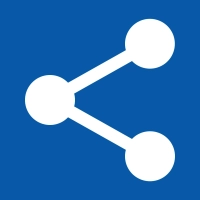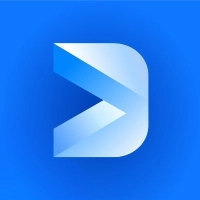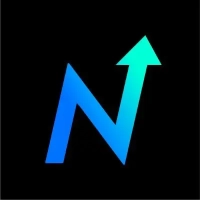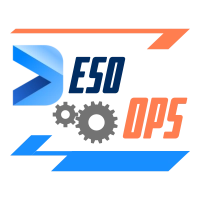Understanding the Future: Exploring Decentralized Apps and Social Networks in the Digital Revolution
As technology continues to evolve, so does the way we interact with the digital world. One of the most exciting developments in recent years has been the rise of decentralized apps (DApps) and social networks powered by blockchain technology. These innovative platforms offer a new level of independence, security, and transparency, disrupting traditional centralized systems. In this blog, we will explore the world of decentralized apps and social networks, diving into the intricacies of blockchain technology and its potential to revolutionize our digital landscape. Join us on this journey of understanding and discover the future of decentralized apps and social networks in the digital revolution. November 18, 2023 12:59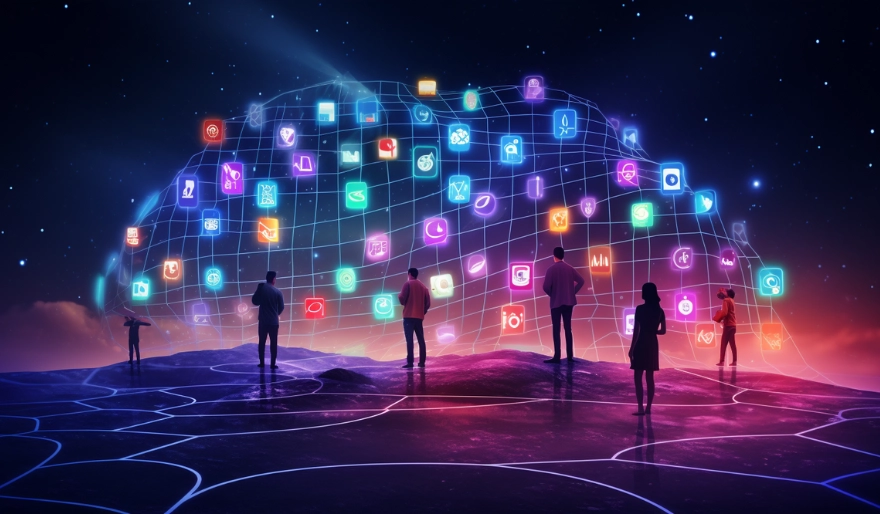
The rise of decentralized apps and social networks
The rise of decentralized apps and social networks has been nothing short of revolutionary. These blockchain-powered platforms have gained popularity due to their unique features and advantages over traditional centralized systems. Unlike their centralized counterparts, decentralized apps and social networks are not controlled by a single entity, but rather operate on a decentralized network of computers. This decentralized nature ensures that no single point of failure exists, making them immune to censorship and manipulation.
Furthermore, the use of blockchain technology provides additional benefits such as increased security and transparency. The data stored on the blockchain is encrypted and distributed across multiple nodes, making it nearly impossible for hackers to compromise. Additionally, the transparent nature of the blockchain ensures that every transaction or interaction on the platform can be traced and validated.
With these advantages, decentralized apps and social networks offer users a new level of control and ownership over their data. Users can decide how their information is shared and even monetize their data through tokenization and smart contracts. This empowers individuals and creates a more democratic and user-centric digital landscape.
In the next section, we will delve deeper into the workings of decentralized apps and social networks, exploring how blockchain technology enables their unique features and functionalities. Stay tuned to discover the limitless possibilities that these platforms hold in the digital revolution.
The potential benefits and drawbacks of decentralized apps and social networks
Next Section: The potential benefits and drawbacks of decentralized apps and social networks
As we explore the realm of decentralized apps and social networks, it is essential to consider the potential benefits and drawbacks that come with this revolutionary technology. While decentralized platforms offer many advantages, they also present unique challenges and limitations.
One of the significant benefits of decentralized apps and social networks is the increased privacy and security they provide. Since data is encrypted and distributed across multiple nodes, there is no single point of attack for hackers. This added layer of security ensures that user information remains safe and protected.
Moreover, decentralization eliminates the need for a central authority, which means that these platforms are not subject to censorship or manipulation. Users have complete control over their data, as well as the freedom to express themselves without fear of being silenced.
Another significant advantage is the potential for users to monetize their data. With decentralized platforms, individuals can directly profit from their information through tokenization and smart contracts. This creates a more transparent and fair economy where users can be rewarded for their contributions.
However, decentralized apps and social networks also face certain drawbacks. One notable challenge is the scalability issue. As the user base grows, the network must handle an increasing number of transactions, which can strain the system's capacity. This leads to slower processing times and higher transaction fees.
Additionally, decentralized platforms may face challenges in terms of user experience. Since these networks are relatively new, they often lack the polished user interfaces and seamless interactions that users have become accustomed to on traditional centralized platforms. This learning curve can deter some users from fully embracing decentralized alternatives.
In the next section, we will delve into specific examples of decentralized apps and social networks that are shaping the digital landscape. By examining real-life implementations, we can better understand how these platforms are revolutionizing various industries and empowering individuals in the digital revolution. Stay tuned to discover the limitless possibilities that lie ahead.
How decentralized apps and social networks are reshaping various industries
The advent of decentralized apps and social networks has sparked a wave of innovation across various industries. From finance to healthcare, these platforms are revolutionizing the way we interact, transact, and collaborate. Let's explore some exciting examples of how decentralized technology is reshaping different sectors.
In the finance industry, decentralized finance (DeFi) has emerged as a game-changer. DeFi platforms enable users to lend, borrow, and trade digital assets without the need for intermediaries like banks. This decentralized approach democratizes financial services, providing access to individuals who were previously excluded from traditional systems.
In the healthcare sector, decentralized apps are empowering patients to take control of their health records. With decentralized platforms, individuals can securely store their medical data and grant access to healthcare providers as needed. This ensures that sensitive information is kept private while enabling seamless collaboration between different medical professionals.
Decentralized social networks are also gaining traction, offering an alternative to mainstream platforms dominated by data monopolies. These networks prioritize user privacy and enable users to have complete ownership and control over their data. This shift marks a significant departure from the prevailing model of exploiting user data for profit.
The gaming industry is also experiencing a decentralized revolution. Blockchain-based gaming platforms allow players to own, trade, and monetize in-game assets. This opens up new opportunities for gamers to earn real value from their gaming activities, creating a more sustainable and rewarding gaming ecosystem.
These are just a few examples of how decentralized apps and social networks are reshaping various industries. By leveraging blockchain technology, these platforms are fostering greater transparency, trust, and efficiency. The possibilities are endless, and as we delve into specific use cases, we will see how decentralized technology is driving the future of innovation. Stay tuned for the next section, where we explore the real-life applications of decentralized apps in different sectors.
The challenges and obstacles in implementing decentralized apps and social networks
While decentralized apps and social networks hold immense potential for revolutionizing various industries, they also face their fair share of challenges and obstacles. Implementing these platforms on a large scale requires careful consideration and problem-solving to overcome the following hurdles:
1. Scalability: One of the biggest challenges faced by decentralized apps is scalability. As the number of users and transactions on these platforms increases, it becomes crucial to ensure that they can handle the load and maintain efficiency. Solutions like layer 2 protocols and sharding are being explored to address this issue.
2. Usability: For decentralized apps and social networks to gain mainstream adoption, they must offer a user experience comparable to traditional centralized platforms. The complexity of blockchain technology and the requirement of managing private keys can be daunting for non-technical users. Streamlining the user interface and enhancing usability is a key challenge that developers need to address.
3. Regulatory concerns: As decentralized apps and social networks challenge established systems and disrupt industries, they also face regulatory scrutiny. Governments may impose regulations to ensure compliance, which could hinder innovation and limit the growth of these platforms. Striking a balance between regulatory compliance and the core principles of decentralization is a delicate task.
4. Interoperability: The compatibility and seamless integration between different decentralized apps and social networks are essential to unlock their true potential. However, achieving interoperability between different blockchain protocols and platforms is a technical challenge that needs to be overcome for widespread adoption and collaboration.
5. Education and awareness: Despite the growing popularity of decentralized apps and social networks, many individuals are still unaware of their benefits and unfamiliar with how to use them. Widespread education and awareness campaigns are necessary to bridge this knowledge gap and enable more people to participate in the decentralized revolution.
As the development of decentralized apps and social networks progresses, addressing these challenges will contribute to their successful implementation and mainstream acceptance. The next section will delve into real-life examples of decentralized apps and social networks, showcasing how they are being used in different sectors to solve real-world problems. Stay tuned for an exciting exploration of these applications!
The future outlook for decentralized apps and social networks
In addition to the challenges discussed earlier, it is critical to explore the future outlook for decentralized apps and social networks. As the digital revolution continues to unfold, the potential for these platforms to reshape various industries is immense.
One area where decentralized apps and social networks are gaining traction is in finance. Blockchain-based platforms are facilitating peer-to-peer lending, cross-border transactions, and even creating new financial instruments. This offers individuals greater control over their finances and brings financial services to underserved populations.
Moreover, decentralized apps are revolutionizing the healthcare industry. By leveraging blockchain technology, medical records can be securely stored and accessed, enabling seamless sharing of information between healthcare providers. This ensures greater accuracy and efficiency, leading to improved patient outcomes.
Another sector benefiting from decentralized apps is supply chain and logistics. By utilizing distributed ledgers and smart contracts, businesses can track and verify the authenticity of products throughout the supply chain. This enhances transparency and minimizes the risk of counterfeiting, ensuring greater trust and accountability in the industry.
Looking ahead, the integration of artificial intelligence and decentralized apps presents a promising combination. AI algorithms can analyze vast amounts of data collected from these networks, providing valuable insights to users. This amalgamation has the potential to revolutionize decision-making processes and make interactions on these platforms even more efficient.
As we delve deeper into the future of decentralized apps and social networks, it becomes clear that their potential is boundless. By addressing the current challenges and embracing innovative solutions, we can expect to witness groundbreaking advancements in various sectors. Stay tuned as we explore the latest developments and real-life applications of these transformative platforms.
Embracing the potential of decentralized apps and social networks in the digital revolution
In conclusion, the future of decentralized apps and social networks holds immense promise. As we have seen, these platforms are already making waves in finance, healthcare, and supply chain management. However, their potential extends far beyond these sectors.
By embracing decentralized apps and social networks, individuals can regain control over their data, finances, and interactions. These platforms have the power to democratize access to financial services, improve healthcare outcomes, and enhance transparency in supply chains. Furthermore, the integration of artificial intelligence will only amplify the benefits and make these platforms even more efficient.
As we move forward, it is crucial for businesses, policymakers, and individuals to embrace the potential of decentralized apps and social networks. By staying informed about the latest developments and actively participating in these networks, we can shape the future and usher in a new era of digital innovation.
So, whether you are a business owner, investor, or simply curious about technology, keep an eye on the advancements in decentralized apps and social networks. The digital revolution is upon us, and these transformative platforms will play a vital role in shaping the way we live, work, and connect in the future.
User Comments (0)
Popular DeSo Apps

